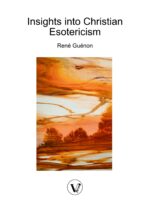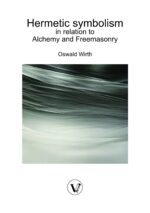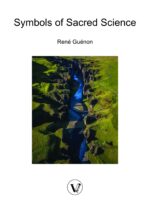The Mystery of Cathedrals: The esoteric interpretation of the hermetic symbols of the great work
In The Mystery of Cathedrals, the mysterious and revered alchemist Fulcanelli unveils the hidden spiritual and alchemical meanings encoded within the architectural marvels of Gothic cathedrals. Delving deep into the intricate symbolism of these sacred structures, Fulcanelli reveals how they are not merely works of art or architecture, but profound representations of the “Great Work” of alchemy—the inner journey of transformation and spiritual enlightenment.
Through detailed analysis of the sacred geometry, iconography, and symbolic motifs found in cathedrals, Fulcanelli uncovers the esoteric teachings that have been concealed in plain sight for centuries. These cathedrals, he argues, serve as physical embodiments of Hermetic and alchemical principles, offering a map to the mysteries of creation, divine order, and the path of spiritual ascent.
A landmark work in the study of alchemy, The Mystery of Cathedrals is a must-read for anyone seeking to understand the hidden meanings behind sacred architecture, the alchemical tradition, and the profound symbolism of the Hermetic arts. Fulcanelli’s exploration offers a deeper, mystical perspective on the cathedrals that have long stood as monuments of both human creativity and divine wisdom.
Paperback ISBN: 978-2487364387
e-book ISBN: 978-2379663116
E-book
Epub, Mobipocket, Web, Send-to-Kindle
Angus Robertson (Australia)
Barnes and Noble
Bookshop.org
Harvard Book Store
Amazon
Walmart
Waterstones (UK)
REVIEW QUOTES:
“The most important Hermetic book of the Twentieth Century.” – Phinephas’ Reviews – Goodreads
“This book changed how I see symbolism in my whole reality. It is a description of teachings written in the stone of cathedrals. People tend to get mired down in the mysterious wording of alchemy discussions such as this. But if you read this as a meditation and chakra work guide, it reads very differently. Substitute the different zone of the body for the symbolism, starting at the “putrified base” as the base chakra, and work up from there. The “green lion” becomes the heart chakra, for example. The darkness becomes the figurative and literal space between the levels, that must be worked through, to reach the next chakra zone. The griffin represents the joining of the left and right hemisphere, in the first of three phases, towards the attempt to reach enlightenment. This is an amazing book, if you understand the key to navigating it.” – J. Schermerhorn’s Reviews – Amazon.com
“The first time I saw this book was on the shelves of my university friend, long long long ago. Recently, because of my research on Alchemical Putrefaction, I decided to take it up again in the original french (not easy reading for someone who is not a native speaker).
What can I say?
First that, unlike most Fulcanellians, I like more the second volume, Les Demeures Philosophales.
Second, that, no matter what one’s opinion might be on the man and his works, this book is an absolute must for all lovers of alchemy.
Third, that this is not a book to read, but a book to study, over and over and over again. Thirty years ago it was totally impenetrable to me, now less so. Perhaps in the future it will be even clearer, who knows?
Fourthly, that there are many weak and hazy spots, for instance the so-called phonetic cabala. My suggestion is: study it, with a critical yet open mind.
Lastly, that, here and there, the prose reaches unsurpassed heights. The man or the men behind this works were no ordinary folks.
The magic of the cathedrals will grip you tightly….” Mirco’s Reviews – Goodreads





